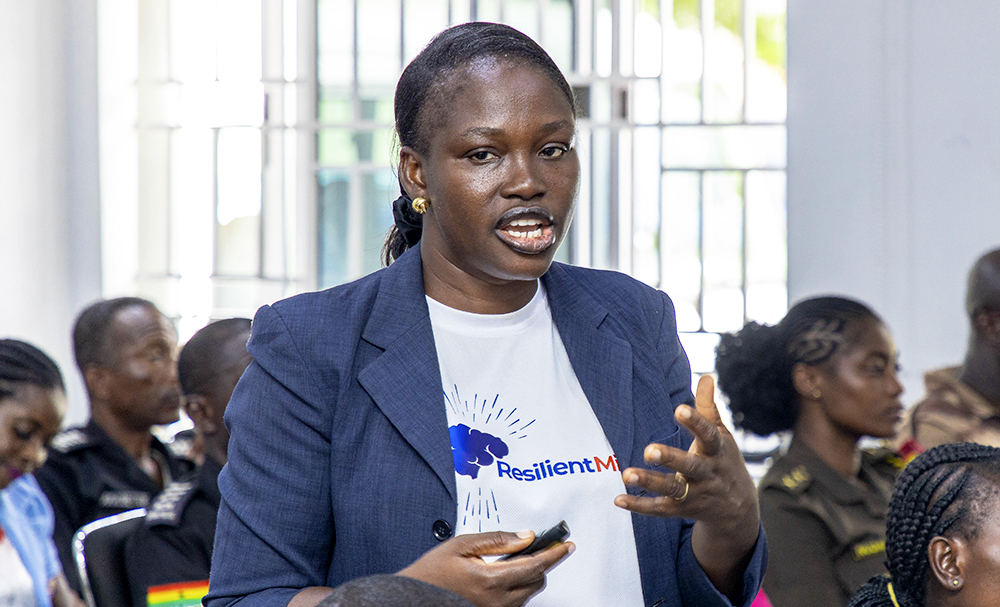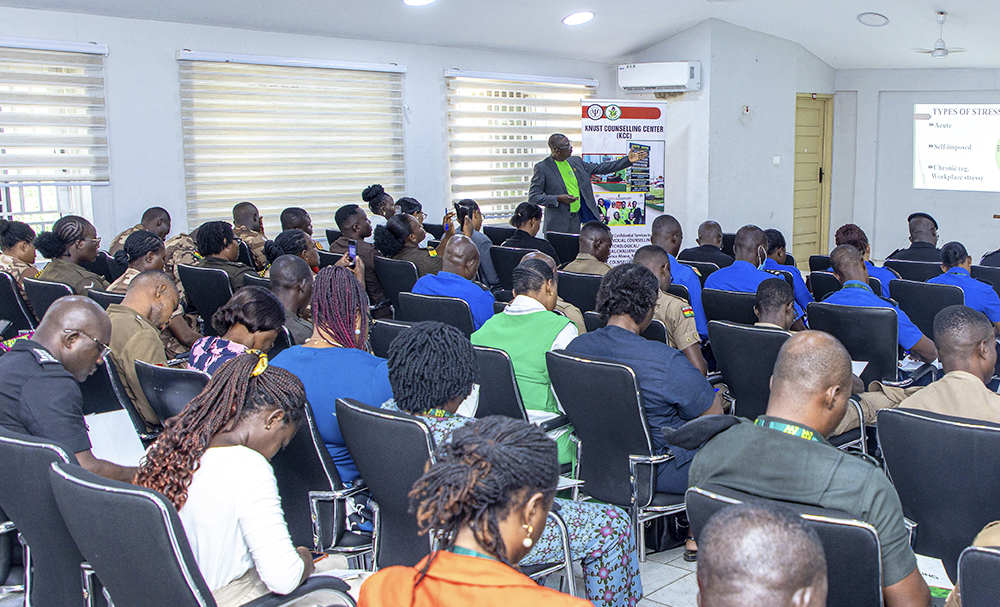The KNUST Counselling Centre (KCC) under the Directorate of Students Affairs (DoSA) organised a weeklong programme dubbed 'Counselling and Emotional Health Awareness/Promotion Week' from Tuesday, 11th to 15th June 2024. The aim was to promote mental well-being to members of the University Community and the general public.
Mr. Joseph Asamoah-Gyawu, a Senior Assistant Registrar at the Directorate of Students Affairs, delivered a presentation on Stress Management. He emphasised that stress is an innate part of life and cannot be entirely avoided. He outlined two types of stress: eustress, which is positive stress that enhances focus and performance, and distress, which is negative stress that prevents relaxation. He highlighted that individuals experience stress not from the events themselves but from their perceptions of those events.

Mr. Asamoah-Gyawu pointed out that emotions such as anger, fear, and depression stem from our thoughts. He identified several indicators of workplace stress, including absenteeism, lateness, unpredictability, and changes in employee behaviour. He advised participants to observe these signs and offer support to affected individuals. He recommended developing a positive attitude, being more accepting, adopting healthy eating and lifestyle habits, and being open to others' perspectives to manage stress effectively.

Dr. Elizabeth Anokyewaa Sarfo Fordjour, a Counsellor at KCC, discussed the importance of emotional intelligence. She emphasised that managing emotions is crucial for building good relationships and that emotions significantly impact productivity. She stressed the importance of managing emotions to prevent impulsive actions, such as rash decisions and spontaneous outbursts. She detailed several components of emotional intelligence, including self-awareness, empathy, self-regulation, social skills, motivation, and self-confidence. She highlighted some indicators of high emotional intelligence, such as the ability to embrace change, a strong sense of self-awareness, and a willingness to learn. She provided practical ways to apply emotional intelligence, including active listening, self-reflection, openness to feedback, empathy, and accountability.

In a session organised for some selected Senior High Schools, Ms. Hajara Baba, an Assistant Clinical Psychologist, explained that people often engage in potentially addictive activities to experience pleasure. This pleasure has a reinforcing effect that, over time, changes the brain chemistry, creating an unconscious drive to continue the behaviour. Various factors contribute to addiction, including genetics and mental health. Ms. Baba elaborated that addiction is particularly challenging to overcome because it fundamentally alters the brain and undermines the motivation to quit. However, understanding the causes of addiction can be a crucial step towards breaking free from it. Addiction affects the brain by subverting the way it registers pleasure and by corrupting normal drives such as learning. She advised that overcoming addiction requires anticipating changes in relationships, avoiding replacement addictive behaviours, finding distractions, and treating any co-occurring mental health conditions.
The awareness week ended on Saturday, 15th June, 2024, with free health screening exercises for the staff of the University, and the general public. Free counselling, consultations, and screenings for Syphilis, Hepatitis B, HIV/AIDS, and eye and breast cancer, among other things, were provided.

















